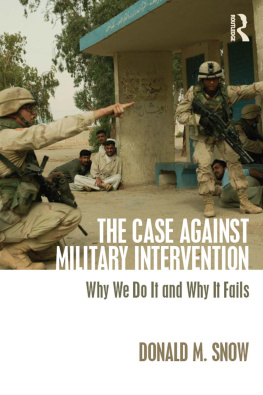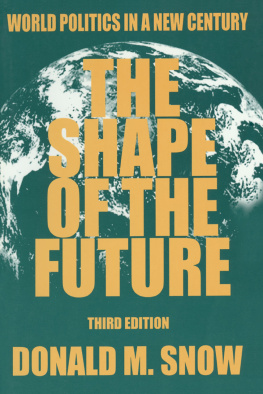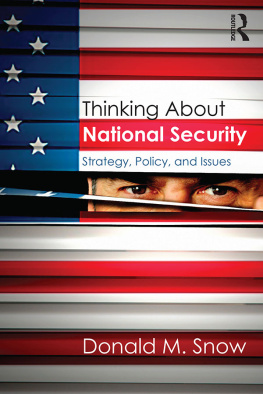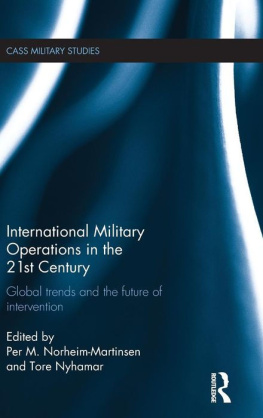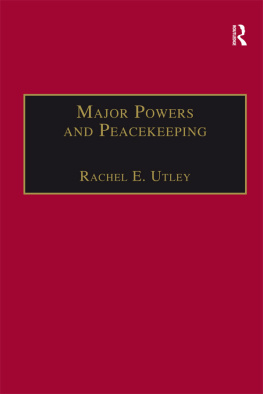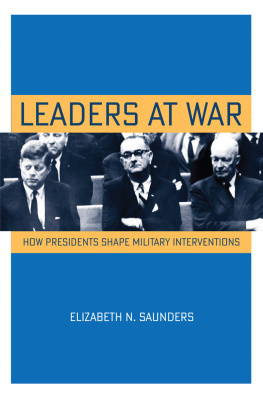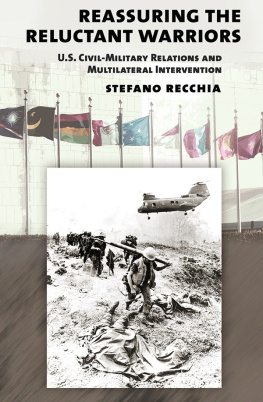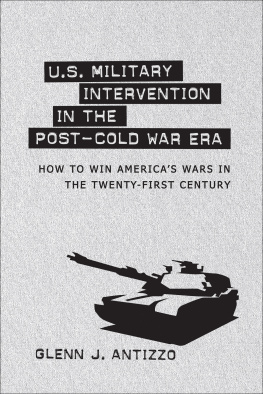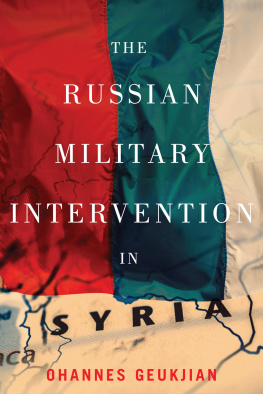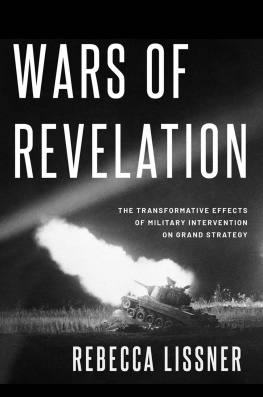THE CASE AGAINST MILITARY INTERVENTION
Since World War II, military interventions in developing world internal conflicts (DWICs) have become the primary form of U.S. military activity, and these interventions have proven unsuccessful in places like Vietnam, Iraq, and Afghanistan. This book argues such failures were entirely predictable, even inevitable, due both to the nature and dynamics of foreign military intrusion in the affairs of other countries and especially the DWICs that provide the major contemporary form of potential U.S. military in the foreseeable future. Basing its analysis in both human nature (the adverse reaction to prolonged outsider intrusion) and historical analogy, the book argues strongly why military intervention should be avoided as a national security option and the implications of such a policy decision for national security strategy and policy.
Donald M. Snow is Professor Emeritus of political science at the University of Alabama, where he specialized in international relations, national security, and foreign policy. He has also served as visiting professor at the U.S. Air, Army, and Naval War Colleges, and the U.S. Air Command and Staff College.
THE CASE AGAINST MILITARY INTERVENTION
Why We Do It and Why It Fails
Donald M. Snow
First published 2016
by Routledge
711 Third Avenue, New York, NY 10017
and by Routledge
2 Park Square, Milton Park, Abingdon, Oxon, OX14 4RN
Routledge is an imprint of the Taylor & Francis Group, an informa business
2016 Taylor & Francis
The right of Donald M. Snow to be identified as author of this work has been asserted by him in accordance with sections 77 and 78 of the Copyright, Designs and Patents Act 1988.
All rights reserved. No part of this book may be reprinted or reproduced or utilised in any form or by any electronic, mechanical, or other means, now known or hereafter invented, including photocopying and recording, or in any information storage or retrieval system, without permission in writing from the publishers.
Trademark notice: Product or corporate names may be trademarks or registered trademarks, and are used only for identification and explanation without intent to infringe.
British Library Cataloguing-in-Publication Data
A catalogue record for this book is available from the British Library
Library of Congress Cataloging-in-Publication Data
A catalog record for this book has been requested
ISBN: 978-0-7656-4755-9 (hbk)
ISBN: 978-0-7656-4756-6 (pbk)
ISBN: 978-1-315-71469-1 (ebk)
Typeset in Bembo
by Taylor & Francis Books
CONTENTS
The author would like to thank his long-time friend and co-author Dennis M. Drew (Col., USAF Ret.). Denny read the entire manuscript and made many useful comments on the content and implications of various arguments I was trying to develop. As usual, he did an excellent job of untangling and simplifying some of my convoluted prose. Thanks, buddy!
Interference in the domestic affairs of other countries by the worlds states is nothing new. Such behavior is at basic conceptual odds with the principle of state sovereignty that undergirds the international system, because that principle asserts that whoever rules a sovereign, independent territory has absolute authority over its realm, a condition that interference violates. Outsiders, however, have or perceive interests in other states business, and they act (interfere) to realize those interests whenever they feel them threatened. What matters is not whether the recipients like the interference or not, but rather whether they can do anything about it or not. Ask the Ukrainians! Sometimes the interferers succeed, and sometimes they do not. International politics has always been this way, and it likely always will be.
All interference is, of course, not the same, and as discussed in , its intents and means constitute a continuum from the comparatively mild, minimally intrusive to the extremely physical, highly invasive and even violent. The most extreme form contemporary interference takes is military intervention in one guise and for one purpose or another. This extreme form of interference is the subject of this book.
Military intrusion has a long and checkered history in human affairs. The focus of this book is narrower, concentrating on the American practice of military intervention. It is particularly concerned with American military incursions over the past fifty years, which have not been particularly successful, and with the prospects for future interventions, which are at least as problematical as the experiences of the recent past.
In the international system since the end of World War II, the United States has been a very active user of military force to solve its international disagreements. Writing in early 2014, Russett, for instance, observes, Since 1950, the United States has engaged in more militarized international disputes than any other country. China and the USSR/Russia are in a tie for second place, followed by Israel in fourth. Most of the major American engagements have been interventions into the domestic affairs of other states. Sometimes these situations involved real, ongoing shooting conflicts into which the United States intruded (Vietnam, for example), sometimes there was not prior organized domestic violence (Iraq), and in others, the United States played a role in precipitating a crisis it then sought to influence (Hawaii in the 1890s, Guatemala in the 1950s). At any rate, this country has been very busy seeking to influence other countries politics with American armed forces.
Although some observers would doubtless contest the point, these efforts have typically been unsuccessful, sometimes in the short run, and usually in the long run. Except in the most narrow, limited sense (e.g., the short-term gain of particular domestic groups empowered by the actions of the intervener), military interventions are never embraced by host populations. There are exceptions when the intrusions are liberations from the outside oppression by other countries, and most important, when they are short (France at the end of World War II is an example), but interventions rarely meet these characteristics. Interveners, including Americans, stick around too long and wear out any welcome they may have enjoyed initially: ask Afghanistans Hamid Karzai. As liberation turns into occupation in the minds of the recipients, the three Rsresentment, rejection, and resistanceincreasingly infect the host population. Although it may take awhile to accomplish, resistance usually prevails and the intruders retreat; any gains that may have been achieved proving to have been transitory, ethereal, and reversible.
This grim assessment should be thoroughly cautionary, and it is offered as a framework for understanding past failures and for gauging future intervention prospects. It strongly suggests that those viewing the contemplation of inserting American armed forces into another countrys domestic affairs should be chastened. Such interventions are likely to be far less easy than advocates suggest (see predictions about Iraq, for instance), and it is more likely than not that whatever goals the United States sets out to achieve will not be realized. Those negative outcomes may be reached in a variety of ways, but they are relatively certain. It is really as simple as that.
This analysis rests on five interrelated theses and observations. Individually and in combination, these observations have particular relevance to potential American actions in international environments currently and in the foreseeable future. The theses and their implications pervade the pages that follow, and are worth noting as a guide to the analysis in the rest of the book.

